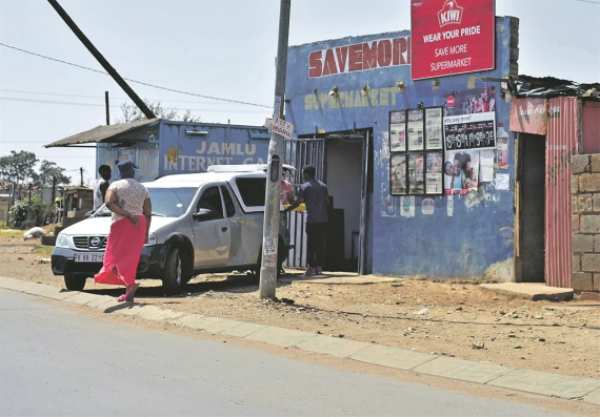Online retail sales in SA will definitely start increasing in the wake of the coronavirus pandemic
One side-effect of the coronavirus pandemic is that it could encourage a big shift among consumers to online retail in SA, a segment that is still in its infancy here.
Derek Cikes, commercial director of fintech company Payflex, says online retail sales make up about 2% of total business in SA at the moment, whereas in the US, Australia or UK it is closer to 10%.
Dion Chang, trend analyst and founder of Flux Trends, says the 2% of people shopping in the digital marketplace will be nudged very quickly as a result of the coronavirus.
Chang says while SA still has a heavy mall culture, the virus will give impetus to the rise of the "stealth-bomber shopper" who researches products online across various platforms and retailers before they purchase them from a bricks-and-mortar store.
- "The ripple effect of that would be less people window shopping and less instant buying," Chang says.
- "Especially now that when people are being told to work remotely, they have a lot more time on their hands. I think that kind of shopping is going to open the eyes of a whole lot of people who didn't really consider online shopping and [who will now] start browsing online."
"A whole lot of people who didn’t consider online shopping will now start browsing online" Dion Chang
Chang says the online services of supermarkets in SA aren't very user-friendly and that the influx of consumers visiting their sites is going to force them to "up their game" and make them more visually appealing and improve the user experience.
"The efficiency of e-commerce supply chains is going to refine very quickly in SA because people are going to have to get it right," says Chang.
Payflex, which offers a "buy now, pay later" service to customers purchasing goods online, says concern about the coronavirus will change buying behaviour in the long term.
Cikes says online retail sales in SA will definitely start increasing in the wake of the coronavirus pandemic.
"What we think will happen with coronavirus is it will push that [online sales] closer to 10%. We also think this will be a long-term trend," says Cikes.
Explaining how Payflex, which has more than 12,000 regular customers and has partnered with about 140 merchants, operates, Cikes says the company allows customers to pay 25% of the purchase price upfront to acquire goods. Payflex settles 100% with the retailer and the customer is allowed to pay the fintech company the remaining 75% over six weeks without any interest or fees. Payflex makes its money from the retailer paying a slightly higher merchant fee for the service. Cikes says panic buying at the moment across SA will raise the risk of nonpayment for his business, but says Payflex has a "good business process" to manage the payments it is owed. "We also screen who buys."
He says the company would give more leeway to existing customers who have a proven track record of paying than to someone new, especially if the prospective client exhibits strange buying patterns.
"If someone came in now and wanted to buy toilet paper on Payflex in bulk, we wouldn't approve them. We have a whole lot of algorithms that monitor behaviour. If something looks weird, we pick it up."
Local retailers have not only seen a flurry of activity at their physical stores, but they've also seen an unprecedented rise in demand coming from e-commerce services as consumers stay at home for fear of contracting the coronavirus.
Retailer Woolworths says it has seen a large increase in orders and that it is constantly replenishing its stock of products that are selling fast. It has added quantity limits on the purchase of products on its online store as well and has opened up more delivery slots where possible.
Pick n Pay too has seen a heavy demand from its online store as well as an increase in the number of new customers.
"We are working hard on finding ways to extend the benefits of our online service. This includes increasing the number of delivery slots so we can serve more customers, and increasing our click-and-collect offer, which has proved a popular tool in other countries, during the coronavirus outbreak," says David North, Pick n Pay group executive for strategy and corporate affairs.
Picup, a delivery services firm that clocks about 25,000 deliveries a month, has experienced an increase of 25% in business.
CEO Antonio Bruni says the biggest surge is in deliveries of food and grocery products. However, he says deliveries for businesses are on the decline as companies close their doors.
"It's a balancing act throughout. Where they're delivering to businesses, for example, businesses are closed, so the frequency of deliveries are going down a little. So there's a little bit of a balancing act when it comes to that. Online orders going to people's homes are definitely increasing," says Bruni.




